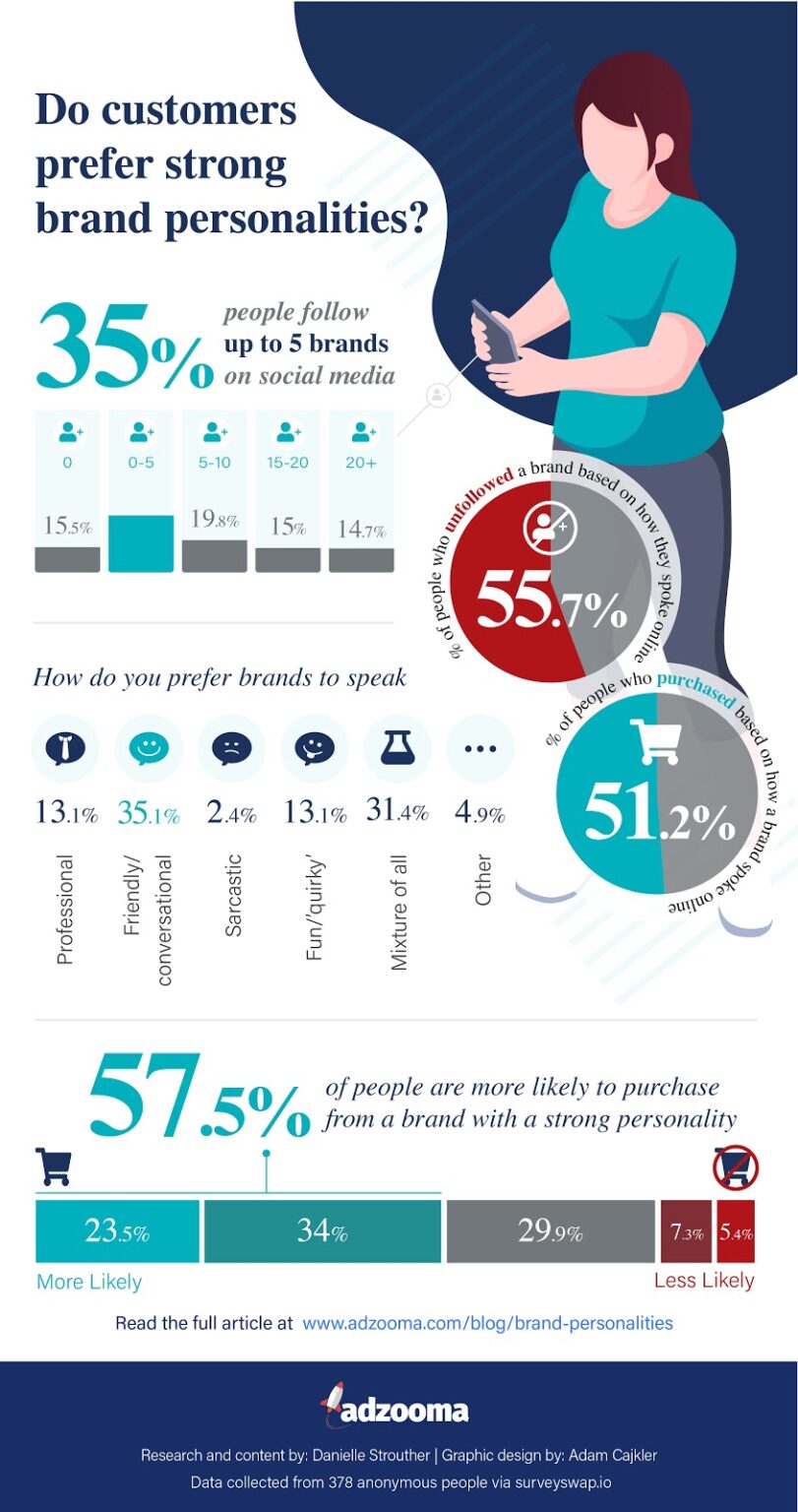Negosentro.com | 57.5% Of People More Likely To Buy From Brands With Strong Personalities | There are 3.6 billion social media users worldwide in 2020. The secret to successful marketing is to connect with your customers, wherever they are. If you want your business to get ahead in this day and age, that means getting your business on social media and building relationships with your customers.
But with the sheer amount of accounts and brands that users come across day-to-day, getting noticed on social media is easier said than done. The ones that have made an impact on social have one thing in common – strong personalities. Think about the sarcastic bite of Wendy’s Twitter account, which has earned the brand over 3.7 million followers.
But are strong personalities worth it for every brand?
To find out, Adzooma has surveyed 378 people* to find out what customers actually think about brands with strong personalities. But more importantly, they also investigated whether or not a strong personality has an impact on a customer’s purchasing decisions.
The results they found were polarising.
Firstly, it revealed that 51.2% have purchased from a brand because of the way they spoke online, making it an important purchasing factor for nearly half of customers.
What’s more, 57.5% of people are more likely to buy from brands with strong online personalities. A reason for this is that strong personalities, such as the likes of Wendy’s, can make brands more memorable.
To Brian Robben, CEO of Robben Media, having a strong personality can also be seen as an endorsement for the brand, as “No one gets loud, reasonably, unless they are confident in their product or service”.
The louder and stronger you are online, the more attention you get.
But not everyone loves a strong personality.
The data also revealed that 55.7% of people have unfollowed a brand for the way they’ve spoken online. Like with real human personalities, there’s not one type that suits everyone. You may get attention for being bold and sarcastic, but if your customers hate it, they’ll leave.
It’s all about finding out what resonates with your customers, and what is true to your brand. If you’ve just launched an online sweet store, being quirky or fun might work for you. But if you’re selling an accountancy software, this approach might not be right as it may make people question if the software seriously works.
When asked what type of personality customers like best, 35.1% of people say that they prefer brands to talk in a friendly and conversational way. This was the most selected response, with:
- 13.1% of people prefer a professional tone
- 13.1% of people prefer a fun or ‘quirky’ tone
- 2.4% of people prefer a sarcastic tone
- 21.4% of people prefer a mixture of all tones
Although not everyone likes a strong personality, a personality for brands is essential. Choosing to opt-out will make it difficult for users to connect or interact with your brand. Without this connection, your brand recall and recognition will suffer immeasurably.
David Foley, Founder of Unified Cosmos, summarises the negative impact of not using a personality online, stating “Brands that are too professional come off as a bit robotic to me, and I tune out immediately”.
Overall, it seems like finding the right brand personality is to balance between the two states. If you go too tame or professional, you’ll find it difficult to connect with customers. The stronger you go, the more chance you have of losing followers. But, the ones that stick around will be more likely to remember your brand and buy from you.
The full data of the Adzooma study can be found here.
 *Data was gathered from 378 anonymous respondents via surveyswap.io. No participant was paid for their response, and the survey was made available to people of all backgrounds, ages, genders and ethnicities to avoid any bias in responses.
*Data was gathered from 378 anonymous respondents via surveyswap.io. No participant was paid for their response, and the survey was made available to people of all backgrounds, ages, genders and ethnicities to avoid any bias in responses.














